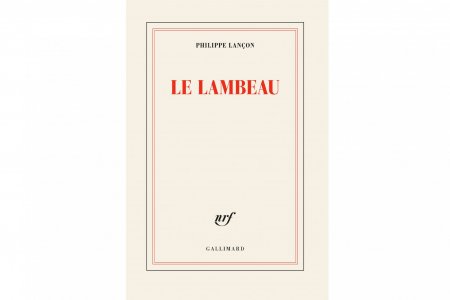 Review
Review
07/02/2018
Marc Le Pape
Philippe Lançon works as a journalist for the French satirical magazine, Charlie Hebdo, and Libération newspaper. His book, Le lambeau was published in April. As the author and subject of his narrative, he relates his experience as a hospital patient after surviving the terrorist attack against Charlie Hebdo during its editorial meeting on 7 January 2015. Although a “novice" when it comes to hospitals and operating theatres, he is a seasoned journalist. He is currently writing for Libération’s culture page, but previously reported on armed conflicts (Iraq and Somalia). So he’s no novice when it comes to casualties of war. In 2015, he became a reporter reporting on himself and on hospital surgery.
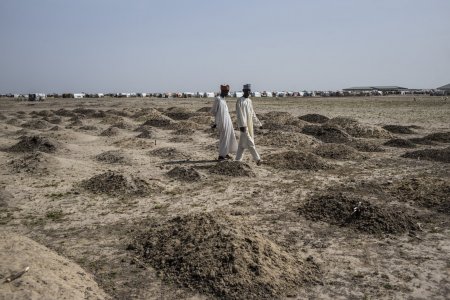 Sylvain Cherkaoui/COSMOS
Opinion
Sylvain Cherkaoui/COSMOS
Opinion
06/25/2018
Fabrice Weissman
The crude mortality rate (CMR) is one of the most widely used indicators at MSF and the humanitarian sector to evaluate the severity of a health crisis within a given population. It is widely recognized that a CMR equal to or greater than one death per 10,000 persons a day signifies an emergency situation requiring an immediate response. However, the usage of the standard emergency threshold as “1/10,000/day” is very questionable: it goes against the official recommendations endorsed by humanitarian organizations and ignores the worldwide decline in mortality rates over the last 30 years.
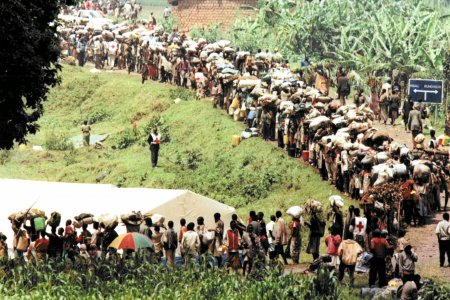 John Parkin
Opinion
John Parkin
Opinion
06/06/2018
Published in March 2018, Judi Rever’s investigative work, In Praise of Blood, quickly garnered international attention. It is an indictment of both the Rwandan patriotic front (RPF) and its leader, current Rwandan president Paul Kagame, and foreign governments and international institutions – the International Criminal Tribunal for Rwanda (ICTR), in particular – that allowed crimes committed against Hutu civilians to go unpunished.Judi Rever’s book is more than a work of investigation. It reads like a prosecutor’s closing argument: the massacres are described in such a way as to classify them as genocide. And it is precisely this combination of investigation and the pursuit of evidence that would stand up in a court of law that is problematic.
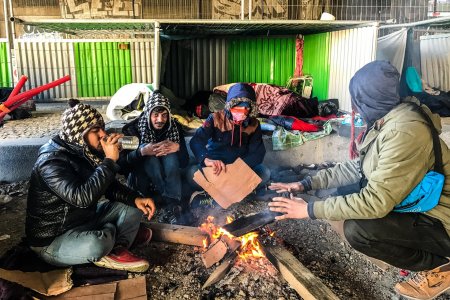 Mohammad Ghannam/MSF
Review
Mohammad Ghannam/MSF
Review
05/31/2018
Elba Rahmouni
Thanks to the migrant crisis, or the reception crisis as it would be more appropriate to call it, the issue of hospitality is back in the forefront. On 17 May, the Maison des Métallos organised a conference with two social science researchers - Michel Agier and Benjamin Boudou - and an NGO manager Cécile Poletti to discuss existing tensions between private hospitality and public hospitality.
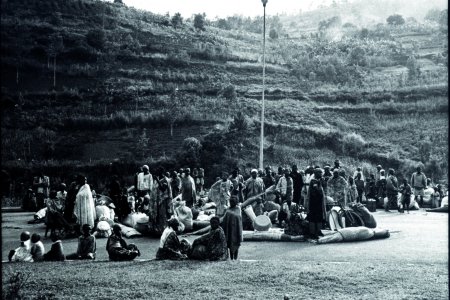 Xavier Lassalle/MSF
Opinion
Xavier Lassalle/MSF
Opinion
04/05/2018
Jean-Hervé Bradol
The publication of the journalist Judi Rever’s book, In Praise of Blood, on the crimes committed by the Rwandan Patriotic Front’s armed rebellion has rekindled discussion over the existence of a “double genocide”, one committed against the Tutsis under the orders of Rwanda’s interim government which took power in April 1994 following the assassination of President Habyarimana, and the other against the Hutus by the Rwandan Patriotic Front (RPF) which seized power in July 1994. There is little or no controversy about the reality of the genocide of the Tutsis in the world of Rwandan studies, but the claim that the Hutus were in turn victims of genocide sparks reactions as violent as they are confused. The cause of this confusion can be found in the different definitions of a term used in at least three fields: history, law and politics.
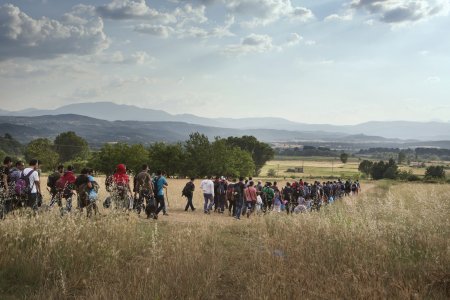 Alessandro Penso
Op-ed
Alessandro Penso
Op-ed
01/12/2018
Michaël Neuman
Abstaining from participation in a meeting taking place this coming Thursday, MSF feels that "government officials have listened politely at best and shown condescension and contempt at worst in response to positions expressed in meetings, op-ed pieces published in the press and questions asked in meetings by NGOs" and do not hide "a policy that is sliding into harsh repression".
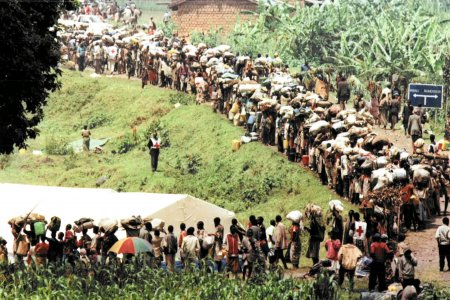 John Parkin
Interview
John Parkin
Interview
01/10/2018
Marc Le Pape
Jean-Hervé Bradol
How much is known about the daily experiences of humanitarian workers in extreme situations such as major conflict or disaster? In their new book, “Humanitarian Aid, Genocide and Mass Killings: Médecins sans frontières, the Rwandan experience, 1982-97”, Marc Le Pape and Jean-Hervé Bradol set out to answer some of these questions. The book is also informed by Bradol’s experience of working for Médecins Sans Frontières in Rwanda during the genocide.
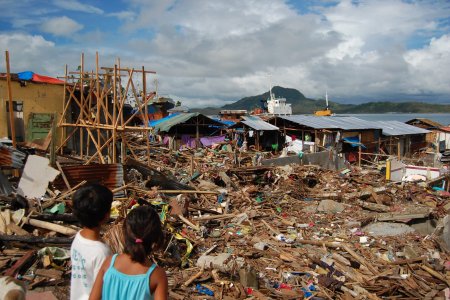 Sophie Jane Madden
Interview
Sophie Jane Madden
Interview
01/03/2018
Rony Brauman
Former president of the NGO Médecins Sans Frontières and current director of studies at the MSF Foundation’s Centre de réflexion sur l’action et les savoirs humanitaires (CRASH), Dr Rony Brauman, explains the difficulties involved in obtaining reliable figures on the human costs of natural disasters.
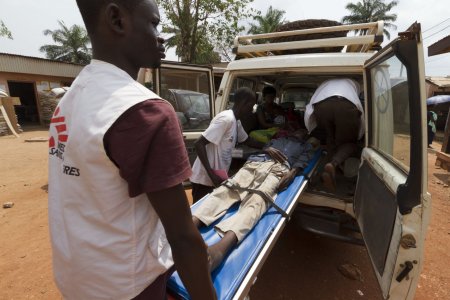 Andre Quillien
Review
Andre Quillien
Review
11/24/2017
Kevin McMahon
Kevin MacMahon's review of "Saving Lives and Staying Alive: Humanitarian Security in the Age of Risk Management" (Michaël Neuman and Fabrice Weissman, London: C. Hurst & Co, 2016) is published in the Journal for the Study of Peace and Conflict (2016, pages 69-70).
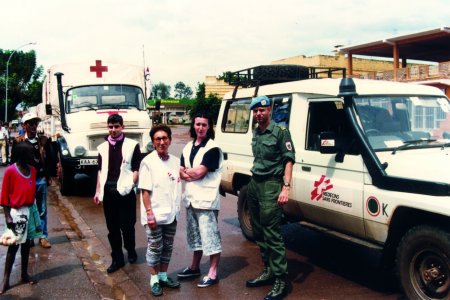 Xavier Lassalle
Op-ed
Xavier Lassalle
Op-ed
10/27/2017
Jean-Hervé Bradol
This op-ed article was published on 27 October 2017 in the French weekly Marianne. He writes it in the backdrop of a controversy around a "Que Sais-Je" book on Rwanda published by the Belgian researcher, Filip Reyntjens and the accusations against him that he rewrites history and seeks to minor the genocide of the Tutsis in 1994.
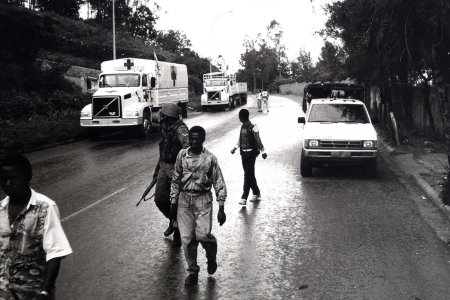 Xavier Lassalle
Opinion
Xavier Lassalle
Opinion
10/23/2017
Marc Le Pape
How can anyone write about Rwanda without being called a denialist? Marc Le Pape tries to craft an answer in this article, published on the website The Conversation on 19 October 2017.
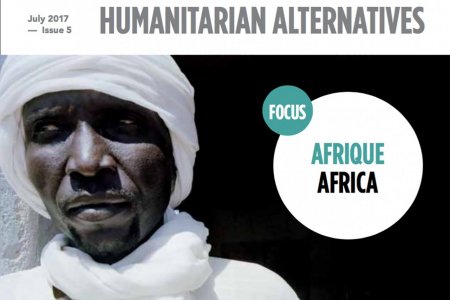 Alternatives Humanitaires
Interview
Alternatives Humanitaires
Interview
07/05/2017
Marc Le Pape
Marc Le Pape, sociologist and member of MSF-Crash Scientific Committee, is interviewed by Boris Martin, Editor-in-chief of Alternatives Humanitaires, about his and Jean-Hervé Bradol's latest book "Humanitarian aid, genocide and mass killings: MSF, the Rwandan experience (1982-1977)".
 Review
Review









